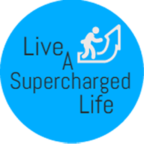Minimalism Decisions What if one small change could free your day and sharpen your focus? I ask because you likely face many choices the moment you wake. On average, people make about 35,000 decisions each day, and that flood drains your willpower fast!
I’ve seen how cutting low-value options transforms life quickly. Simple moves—like a laminated weekly meal plan on the fridge or a pared-down wardrobe in core colors—remove repeat questions and curb impulse buys. Those tiny edits save time and energy and clear mental clutter.
The approach here is practical and joyful. You won’t chase perfection. Instead, you’ll lock in smart choices that compound into real gains. Expect actionable tips that shrink the daily load, protect your brains from fatigue, and make your home and world feel calmer.
Key Takeaways
- Many decisions each day lead to fatigue; pre-planning reduces the load.
- Simple rules for meals and clothes save time and curb impulse buying.
- Fewer visible things create immediate mental space and calm.
- Small, consistent choices compound into big wins for your life.
- You can reclaim energy and clarity with fun, easy steps today!
Why decision fatigue steals your time and energy—and how a minimalist approach gives it back
Tiny, constant choices quietly drain your day and your brain. You face about 35,000 choices a day, and that flood wears your willpower down fast!
When your willpower fades, the quality of your decisions slips. The result? More impulse purchases, random yeses, and wasted time. Your brain trades real judgment for shortcuts when it’s tired.
Here’s the good news: a thoughtful, minimalist approach reduces the tiny daily choices that add up. Pre-planning meals, paring down wardrobe options, and silencing needless notifications mean you face fewer repetitive choices.
- Decision fatigue is real: you’re ’re faced with countless choices before breakfast and your brains get tired.
- Fewer inputs protect willpower and free energy for big moves that matter.
- Over years, people who simplify report more time, better quality choices, and fewer regrets.
In a noisy world full of stuff, cutting down the number of small choices is a fast way to reduce decision fatigue and reclaim time. Thanks to a few pre-commitments, you’ll feel calmer and more focused—often within a week!
Minimalism Decisions that cut through daily noise and elevate what really matters
Make a few smart swaps and watch your daily noise fall away! These are practical moves you can lock in today to reduce decision fatigue and free up energy for what you love.
Create a weekly meal plan
Laminating a weekly meal plan on the fridge removes nightly questions. Pick simple meals once, shop once, and cook extra so tomorrow’s meal is already ready. This reduces decision fatigue and cuts last-minute takeout.
Build a capsule wardrobe
Choose core colors and repeat outfits you love. Fewer wardrobe choices save willpower, time, and money while helping you look put together fast.
Declutter visible surfaces and streamline devices
- Clear surfaces: fewer things out means instant calm and less tidying.
- Digital trim: delete unused apps, mute notifications, and organize files to protect focus and energy.
Set social filters, automate bills, and use rules like a 30-day wait or one-in-one-out for shopping. These simple systems cut impulse buys, reduce the number of tiny choices you’re ’re faced with, and give you back a lot time.
Getting rid of the excess at home and online to reclaim space, focus, and willpower
Letting go of clutter at home and online frees time and mental energy fast. A few small edits around your living space and phone cut the tiny choices that add up. You’ll feel lighter and more calm almost immediately!

A minimalist home: fewer knick-knacks, less maintenance, more peace
Clear visible surfaces and remove extra furniture to stop deciding where to stash things. Fewer items means less cleaning, less shuffling, and fewer daily decisions about what stays or goes.
Digital declutter: organize files, simplify tools, and reduce distractions
Delete unused apps, sort files into a simple folder system, and mute nonessential alerts. These moves lower decision fatigue and protect your focus for deep work.
Maintenance mindset: only keep what you’re willing to clean, store, and insure
Adopt a rule: only keep things you’ll actually maintain. Trim wardrobes, kitchen gear, and decor so you stop re-deciding every week.
- Clear the decks at home: getting rid of extra knick-knacks lifts the space.
- Less to clean means fewer decisions and more peace.
- Pick fewer, better tools to reduce friction.
- One strong example: schedule a 60-minute sweep each week—home first, then your phone.
The result is a calmer world at home and online, with more time and energy to spend where it counts. This practical approach eases fatigue and brings a steady sense of control—no perfection required!
People over plenty: decisions that strengthen relationships and protect your energy
Invest in a few deep friendships and watch your daily stress shrink. When you trade quantity for quality, you free up time and emotional bandwidth. You stop answering every invite and start showing up where it counts!

Let go of toxic friendships and invest in the few who give back
It’s okay to step back from people who drain you. Say goodbye with kindness and protect your emotional energy. Then put more time into friends who listen, cheer, and show up.
Boundary-based scheduling: reduce decision fatigue by pre-committing your time
Block your calendar for work, family, rest, and friends. These rules cut daily friction and prevent endless back-and-forth about plans.
- Choose people over plenty — fewer, deeper connections deliver more energy and joy.
- Use simple scripts for invites: a brief, kind no ends overthinking.
- Make default “social hours” so you spend less time juggling and more time present.
| Action | Why it helps | Result | When to review |
|---|---|---|---|
| Cut toxic ties | Stops energy drain | More emotional space | Quarterly |
| Pre-commit calendar | Reduces daily choice load | Fewer last-minute yeses | Monthly |
| Pick core people | Deepens support network | Higher quality interactions | Yearly |
The result: a lighter social load, clearer sense of what you value, and less decision fatigue overall. Over the years, your world will feel kinder and more supportive as you focus on the people who really matter!
Turn shoulds into musts: a decision-making reset that sticks
Swap vague “I should” plans for a tiny list of true non-negotiables. A Must List moves choices from thinking to feeling. That shift makes action automatic and protects your willpower.
Make a Must List to align actions with values
Write what you must do, not what you might do. Keep it short and emotional. When a rule feels real in your gut, following it becomes the only decent option.
A quick-start plan: three pre-decisions to make today
- Plan one meal for tonight so you skip the late scramble.
- Set one shopping rule (like a 30-day wait) to reduce impulse spending.
- Pick one nightly shutdown time to reclaim calm and better sleep.
Add a simple “no” script for invites. Stack tiny wins: a 10-minute declutter, inbox rules, and a short morning routine. Keep a one-page playbook you review each night.
Thanks to clear musts, your energy stretches further and decision fatigue fades. Track results weekly: less scrolling, fewer impulse buys, and one calmer evening. This is a practical way to build a life you love—starting today!
Conclusion
Start small today and watch your energy climb as the tiny choices vanish! A few steady habits—weekly meals with leftovers, a pared-down wardrobe, and a 30-minute Friday reset—cut the load of many decisions and free precious time.
Use simple rules to reduce decision fatigue. Clear surfaces, mute nonessential alerts, and keep a visible Must List. These steps protect willpower so you can focus on what really matter.
This minimalist approach trims the reducing number of low-value tasks. In weeks you’ll see quick wins; over years, the compounding gains improve your life, relationships, and the quality of your days!
Elevate your spiritual journey with Conscious Items’ genuine gemstones, trusted by thousands and backed by a 30-day money-back guarantee. Don’t let these powerful crystals pass you by—stocks are limited, and the perfect one for you is waiting! Visit Conscious Items now to find your crystal match before it’s too late.
If you liked reading this article you will love this article Habits of Healthy Relationships: 10 Keys to Lasting Love: The Ultimate Love Stone for Heart Healing
Morganite Crystal Healing Properties



